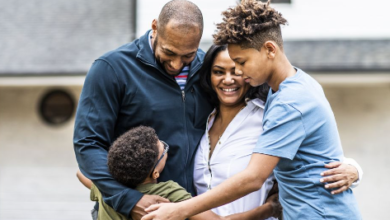

Past relationships can leave a profound impact on our emotional well-being, often require time and effort to heal. While the healing process is unique to each individual, there are certain steps one can take to navigate through the pain and emerge stronger. This article explores practical strategies and self-care techniques on how to heal from past relationship, regain your sense of self, and embrace a brighter future.
This happens to anyone when things do not add up in the relationship. Even after careful qualities check for the boyfriends, along the way it turns out to be different.
Why is it difficult to heal from past relationship
Before getting to some of the ways of how to heal from past relationship, a very important question is why is it difficult to heal? Healing from a past relationship can be a complex and arduous journey. The emotional baggage, lingering memories, and unresolved issues can make the healing process challenging.
Sometimes when you sit down and remember events of 20 years ago, you feel something that is painful. You wonder what happened and yet you’ve gone through several other relationships and forgotten. But why that one?
The answer to this is based on the way you process emotions of attachment style, expectations of the future and how your emotions interact with your memory.
Emotional Attachments and Bonding
One of the main reasons healing from a past relationship is difficult is the emotional attachments formed during that time. Intimate relationships create deep bonds and attachments that are not easily severed. Letting go of those feelings of love, companionship, and familiarity can be incredibly challenging, especially when there is a sense of loss or betrayal involved.
Unresolved Issues and Trauma
Unresolved issues and trauma from past relationships can impede the healing process. Emotional wounds, such as trust issues, fear of vulnerability, or low self-esteem, may have been inflicted during the relationship, leaving a lasting impact. These unresolved issues require time and effort to address and heal.
Grief and Loss
The end of a relationship often involves a sense of grief and loss. Whether it’s the loss of a partner, shared dreams, or the future envisioned together, coming to terms with the loss can be a painful and lengthy process. Healing requires allowing oneself to mourn and accept the reality of the situation.
Triggers and Reminders
Triggers and reminders of the past relationship can hinder the healing process. Everyday encounters, such as visiting familiar places, hearing a particular song, or even encountering mutual friends, can evoke memories and stir up emotions. These triggers can make it challenging to move on and heal.
Self-Identity and Self-Worth
Past relationships often shape our sense of self-identity and self-worth. When a relationship ends, it can leave individuals questioning their value and questioning who they are without their partner. Rebuilding self-esteem and rediscovering one’s identity after a breakup takes time and introspection.
Social and Cultural Influences
Social and cultural influences can add to the difficulty of healing from a past relationship. Society often places expectations on individuals to move on quickly or “get over” a breakup, which can create pressure and unrealistic timelines for healing. Additionally, cultural beliefs around relationships and marriage can further complicate the healing process.
This is how to Heal from past relationship
Acknowledge and Validate Your Feelings
The first step towards healing is acknowledging and validating your emotions. Allow yourself to feel the pain, sadness, anger, or confusion that may arise from a past relationship. Denying or suppressing these feelings can impede the healing process.
Share your emotions with trusted friends, family, or a therapist who can provide a safe space for you to express yourself. Actions at this point depends on your personality type. This is great time to explore more about yourself. You can do personality test.
Shift your focus
Focus is a very important element of human life. With it you can turn setbacks into opportunities, negatives into positives, failures into lessons. Just accept that you can only control your own actions and decisions. Shift your focus from people and events that are beyond your control.
Once you are out of unhealthy relationship, let it go and learn from mistakes. Your past does not equal your future and that every day is a chance to start over.
Practice Self-Reflection
Engage in self-reflection to gain insights into the dynamics of your past relationship. Take time to assess your own contributions and identify any patterns or behaviors that may have contributed to the relationship’s challenges. This process can foster personal growth and help you avoid repeating similar patterns in future relationships.
While doing this, do not create black spots and tend to overlook at the little things. They are too important getting to your full exploration. Some things may be bitter when you reflect but they help in easing the feelings.
Set Boundaries and Create Space
Establishing boundaries is crucial when healing from a past relationship. Limit contact with your ex-partner to create emotional space and allow yourself to heal. This may involve unfollowing them on social media or refraining from checking their updates. Setting boundaries also applies to the people around you—communicate your needs and ask for support when necessary. In situations where you were living together, it is a high time to seek another place to stay.
Create sufficient time to grief
Do not rush into another relationship even when there is a ready partner. This is an opportunity stabilize your thoughts. Rushing can make you never to heal or bring it back in future. Such situations are avoidable when you become patient with yourself.
Engage in Self-Care
Prioritize self-care activities that nurture your physical, mental, and emotional well-being. This can include engaging in regular exercise, maintaining a balanced diet, getting sufficient sleep, and practicing relaxation techniques such as meditation or deep breathing exercises. Additionally, explore activities that bring you joy, such as pursuing hobbies, spending time in nature, or engaging in creative outlets. Self-care is an essential aspect of healing, as it helps rebuild your self-esteem and rediscover your identity.
Seek Support from Loved Ones
Surround yourself with a supportive network of friends and family who can provide emotional support during the healing process. Share your experiences, thoughts, and feelings with them, and allow them to offer comfort and guidance. Consider joining support groups or seeking professional help through therapy or counselling, where you can gain valuable insights, learn coping mechanisms, and receive guidance tailored to your specific needs. Some pieces of advice may not help you but try as much as possible to filter that has value to you. Remember not all you share such experiences mean well for you, be cautious.
Cultivate Forgiveness and Letting Go
Forgiveness is a powerful tool for healing that has its foundations in religious teachings. It is essential to forgive both yourself and your ex-partner for any past hurts. Forgiveness does not mean condoning the actions or forgetting the pain, but rather freeing yourself from the burden of resentment. Letting go of negative emotions allows you to move forward with a lighter heart and an open mind. Historical memories and mistakes can make you a prisoner of the past.
Talk to yourself that there is no one true love for everyone
There is no powerful voice that get to your heart than the one that comes from your inner self. It answers the questions in the feelings. What you can not speak out. True love is not for everyone, maybe that relationship was not meant to be yours. Perhaps there was certain manipulation techniques that would eventually end. Everyone has a portion of love and that yours is yet to come.
Conclusion
Healing from past relationships requires time, patience, and self-compassion. How to heal from past relationship starts by acknowledging your emotions, practicing self-reflection, setting boundaries, engaging in self-care, seeking support, and cultivating forgiveness, you can gradually heal and grow from the experience. Remember that healing is a personal journey, and it’s important to be kind to yourself throughout the process. With dedication and a positive mindset, you can emerge from the shadows of the past and embrace a brighter, more fulfilling future.





Nice content keep it up 👍
You have said it all
Sure, thanks